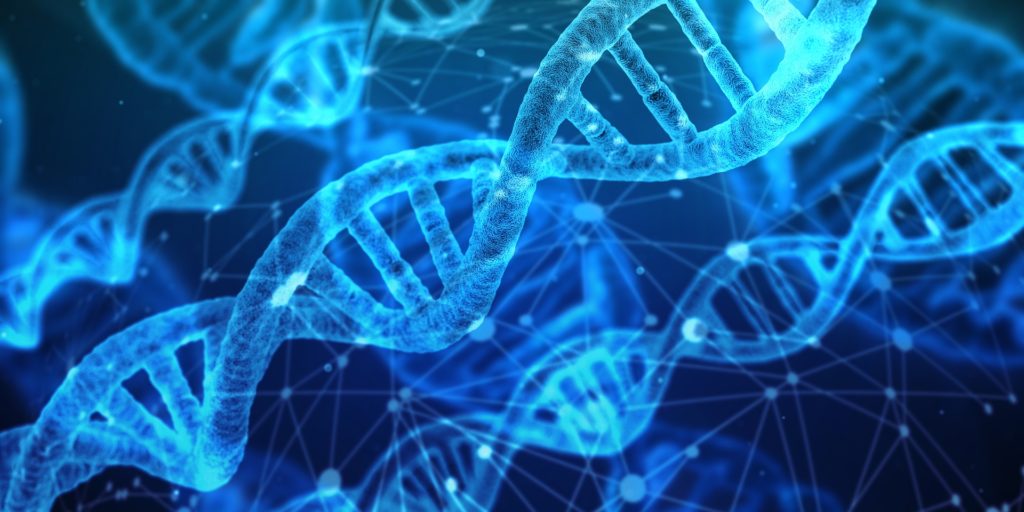
Addiction has long been misperceived as a moral failing and weakness of character. It is now, finally, being discussed for what it really is: a mental illness entailing a complex combination of genetic and environmental elements. This raises the question if one's tendency toward addiction is inherited?
Numerous studies have confirmed so. A study assessing identical and non-identical twin pairs found that if one identical twin was addicted to alcohol, the other twin had a high probability of being addicted as well.
The children of addicts are found to be 8 times more likely to develop an addiction.
Understanding inherited variants
Even though the past few years have witnessed significant progress in the science of genetics, identification of the possible genetic contributions to addiction has proven to be quite challenging. This is attributed to the involvement of an array of inherited variants in multiple genes.
When it comes to nicotine addiction, for instance, researchers must explore complex and distinct questions such as whether specific genetic variants are involved in the initiation of smoking and if certain variants support behaviors resulting in heavy smoking.
Inherited variants can potentially alter the functioning of genes, similar to the mutations that put children at risk for cystic fibrosis or expose women to risk for breast cancer thus leading to the possibility that the tendency toward addiction is inherited.
Present study

A NIDA-funded study checked in recorded data of up to 1.2 million people, simultaneously assessing multiple substance use behaviors and then cross-checking them to potential genetic influences.
Utilizing this comprehensive database, an international group of over 100 scientists collected information on smoking and alcohol use.
Behaviors including the age of initiation of smoking, the frequency and intensity of smoking, rate of quitting, and weekly consumption of alcohol were measured.
These measures were then cross-checked with other life events like years of education, physical characteristics like cholesterol level and diseases such as mental illnesses, Parkinson’s, or Type 2 diabetes.
Following this was the correlation of these results with specific genes suspected in different types of substance use.
Results revealed over 400 locations in the genome and at least 566 variants within these locations that affected smoking or alcohol consumption. Locations retaining genes that influenced synaptic transmission were identified as part of the results that could prove crucial in understanding the inherited characteristics in addiction.
It was further revealed that the areas associated with smoking and alcohol consumption influenced the production of other chemicals such as glutamate transmission (the strength of synaptic connections); dopamine (linked to learned behavior and reward); and acetylcholine (the most plentiful nervous system transmitter.)
Are genes your fate?
Numerous people come from addicted families, but that does not mean that all of them will succumb to addiction themselves sooner or later. Many such individuals have managed to overcome their family history and live happy, fulfilled lives. This is because addiction is not all genetic. Environmental factors and the nature of coping skills are just as important.
If the tendency toward addiction is inherited, surrounding yourself with a positive and functioning support system, avoiding triggers and focusing on a healthy lifestyle can all make a significant difference.
Why is this important?
 Researchers believe that the findings from the present study will enable scientists to move closer toward the identification of clusters of genes that could potentially influence the onset and retention of addiction.
Researchers believe that the findings from the present study will enable scientists to move closer toward the identification of clusters of genes that could potentially influence the onset and retention of addiction.
This can be particularly helpful for devising future strategies to screen patients who are at a higher risk of addiction. It can also be beneficial for treating patients and focusing on targeted approaches to highlight the root cause of addiction.
Addiction needs no longer to be taboo. There is treatment and hope available to overcome this disease. Seek out help, relearn healthy coping skills, and work toward a sustainable recovery.
More importantly, your addiction does not have to define the future of your kids. You can pass on a legacy of healthy coping skills for them and set an example of strength to overcome odds.
References
1. https://www.drugabuse.gov/news-events/news-releases/2019/01/scientists-closer-to-finding-inherited-traits-in-addiction
2. https://ajp.psychiatryonline.org/doi/full/10.1176/ajp.156.1.34
3. https://addictionsandrecovery.org/is-addiction-a-disease.htm
About the Author:
 Sana Ahmed is a journalist and social media savvy content writer with extensive research, print, and on-air interview skills. She has previously worked as a staff writer for a renowned rehabilitation institute, a content writer for a marketing agency, an editor for a business magazine and been an on-air news broadcaster.
Sana Ahmed is a journalist and social media savvy content writer with extensive research, print, and on-air interview skills. She has previously worked as a staff writer for a renowned rehabilitation institute, a content writer for a marketing agency, an editor for a business magazine and been an on-air news broadcaster.
Sana graduated with a Bachelors in Economics and Management from the London School of Economics and began a career of research and writing right after. Her recent work has largely been focused upon mental health and addiction recovery.
The opinions and views of our guest contributors are shared to provide a broad perspective of addictions. These are not necessarily the views of Addiction Hope, but an effort to offer a discussion of various issues by different concerned individuals.
We at Addiction Hope understand that addictions result from multiple physical, emotional, environmental and genetic factors. If you or a loved one are suffering from an addiction, please know that there is hope for you, and seek immediate professional help.
Reviewed and Approved by Jacquelyn Ekern, MS, LPC on July 22, 2019
Published July 22, 2019, on AddictionHope.com
